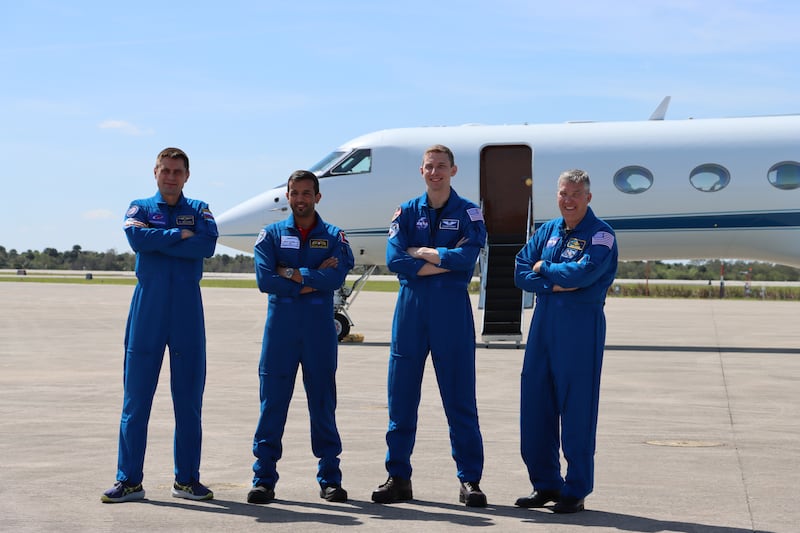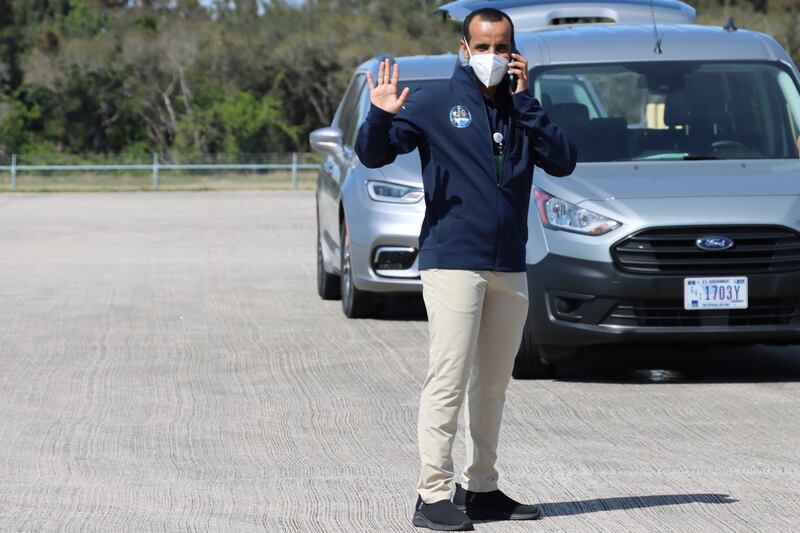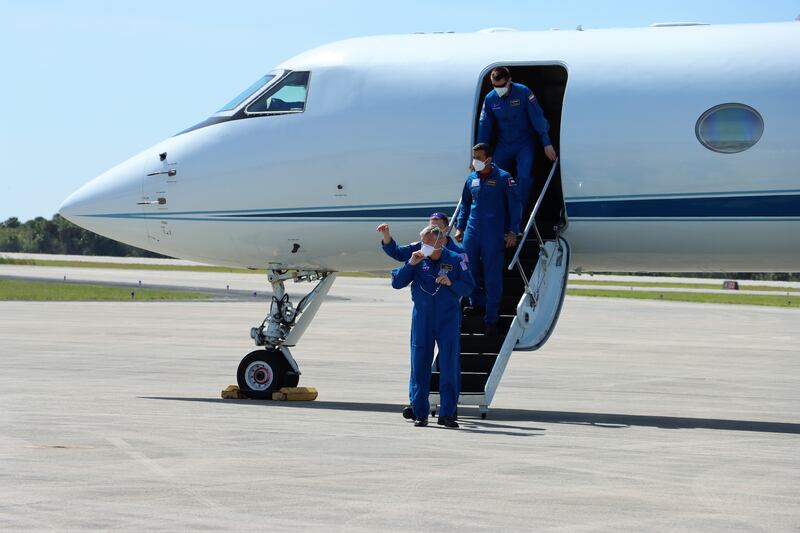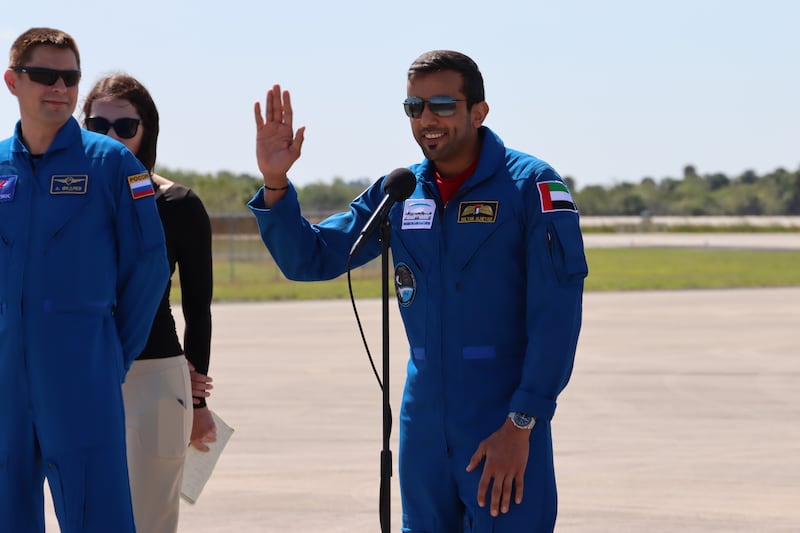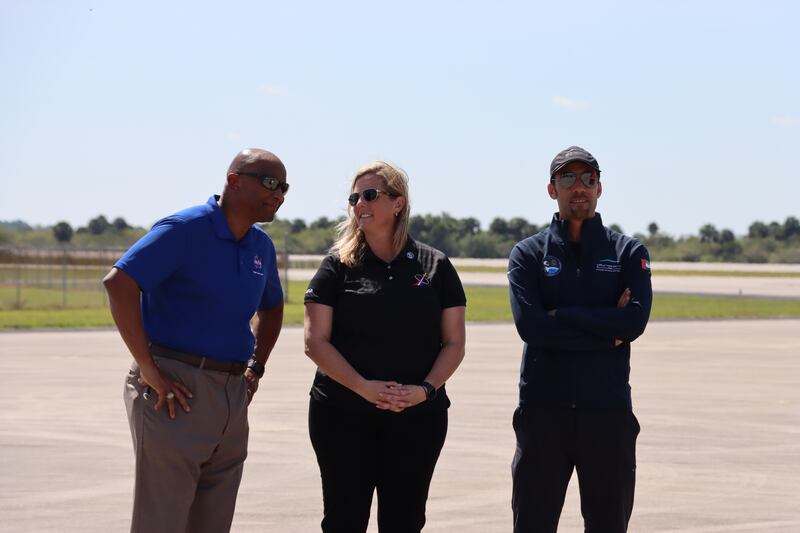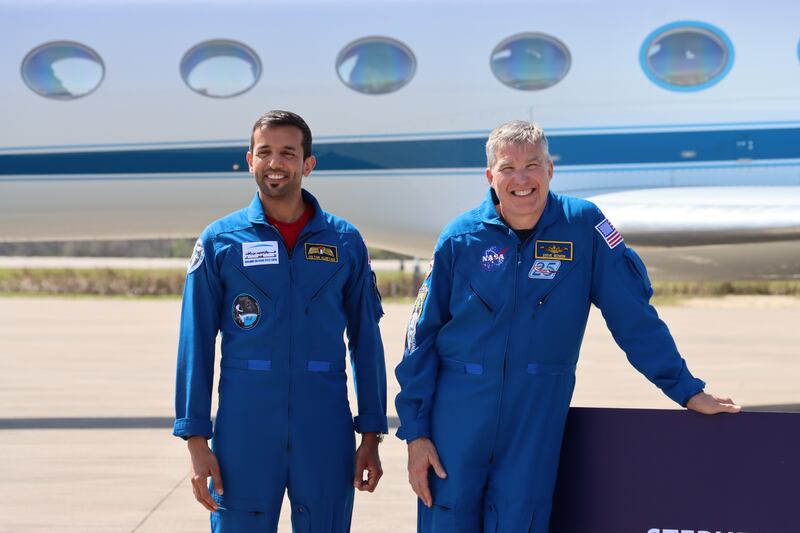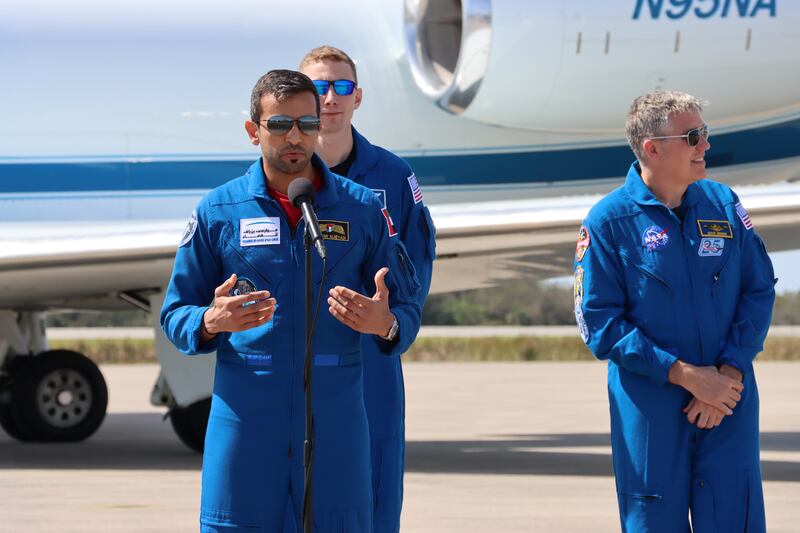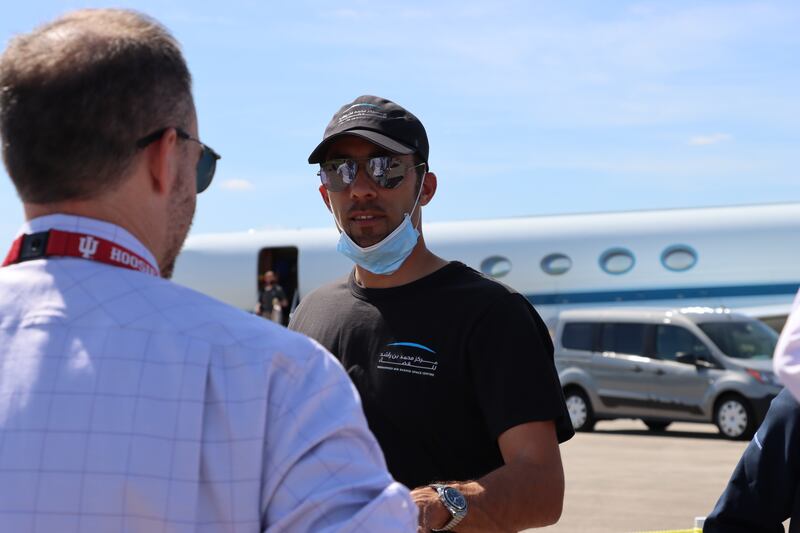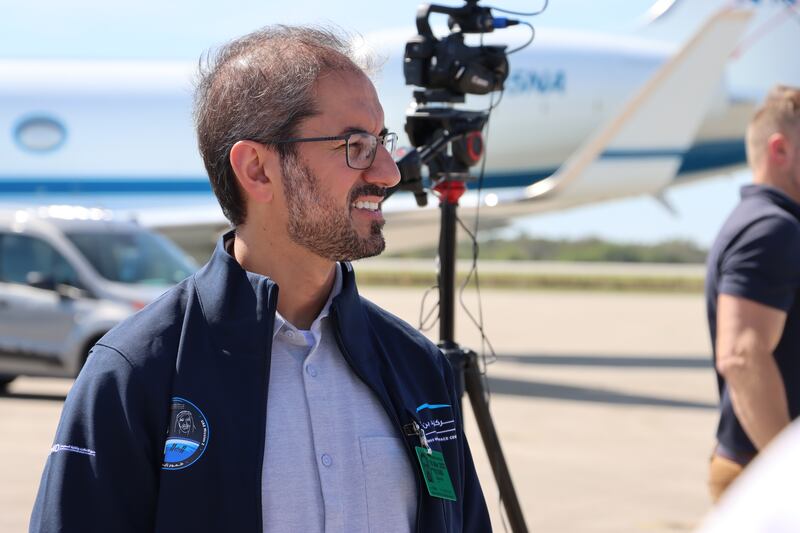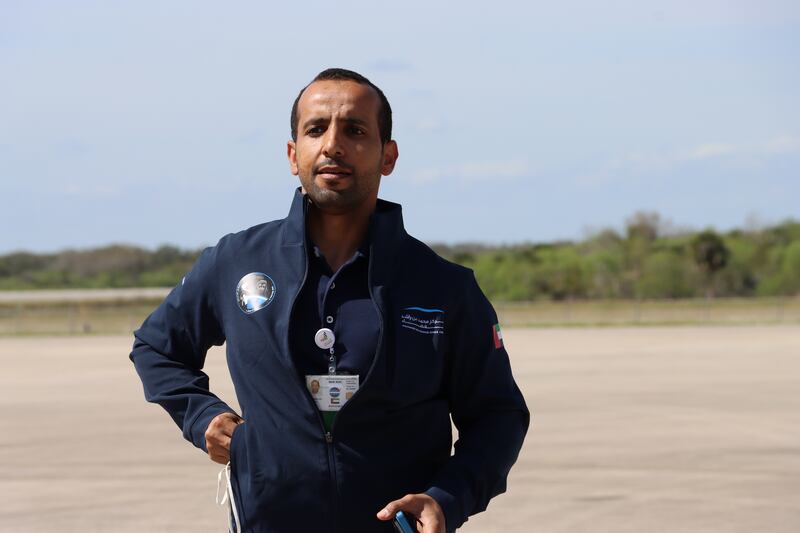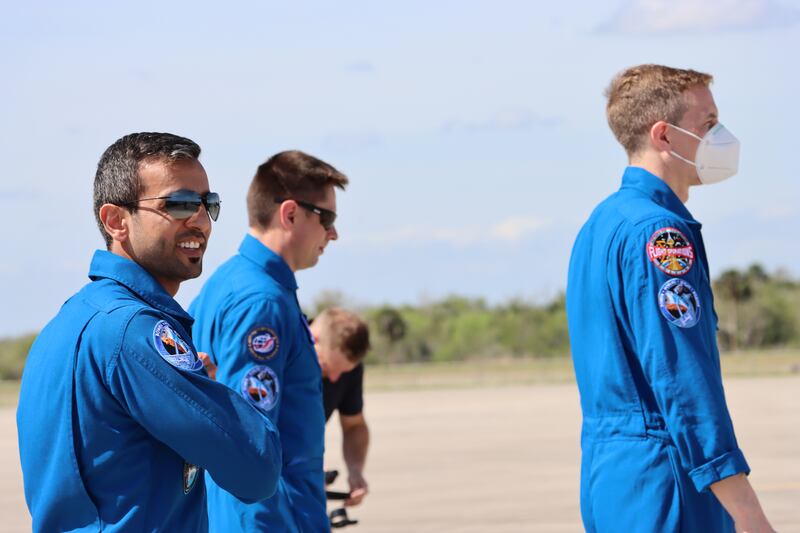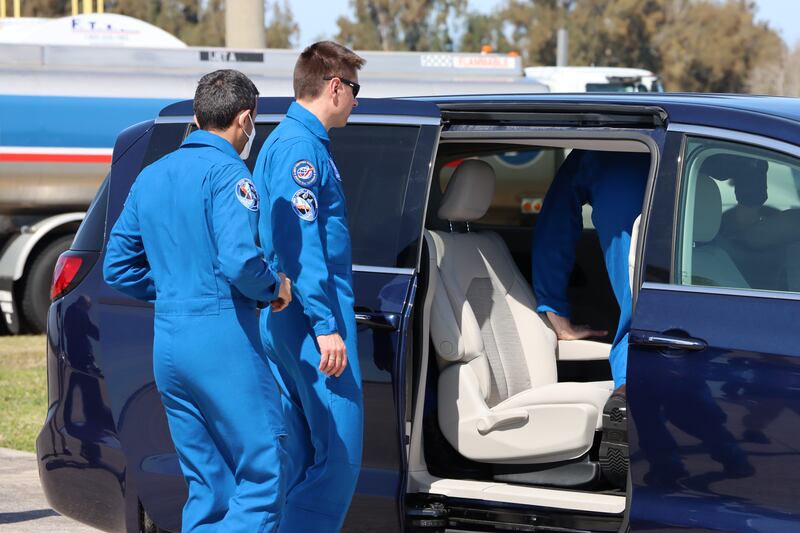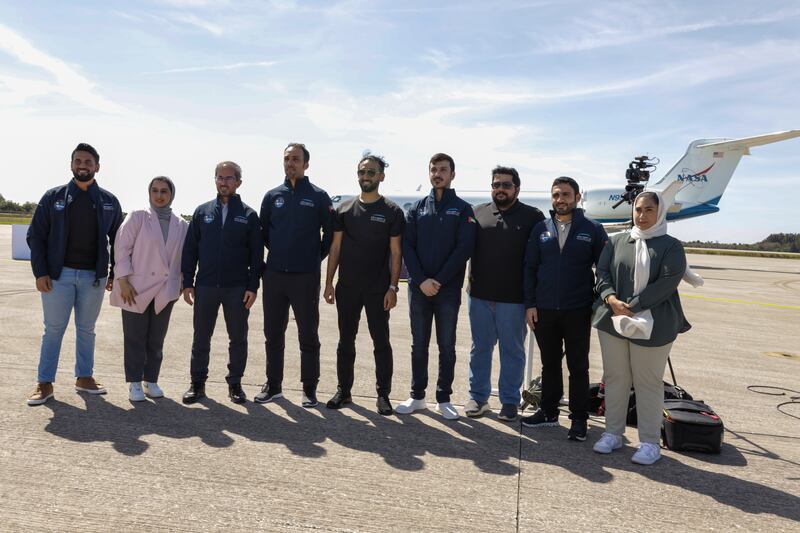Astronauts have been living on the International Space Station for more than 20 years – eating, sleeping, bathing and using the toilet as their bodies float in microgravity.
And life on station, which orbits 400km above Earth, will be no different for UAE astronaut Sultan Al Neyadi during his six-month stay.
The 41-year-old will launch on his first space mission on February 27, carrying traditional Emirati cuisines, photos of his family, the UAE flag and other personal items with him to make his environment a little less alien.
But there will be many new things the astronaut will have to get accustomed to – including drinking coffee made with processed and filtered urine and sweat.
Astronauts over the years have documented these daily routines to show the public how life is on the orbiting science laboratory.
The obvious question – is there a toilet?
The latest high tech toilet, worth $23 million, was installed on the ISS in 2020.
It is believed to be the most expensive toilet ever assembled, beating a $19 million order-made by Nasa in 2007.
The titanium toilet, called the Universal Waste Management System (UWMS), uses air flow to pull urine and faeces away from the body into separate containers.
A new feature is that the air flow starts automatically once the lid is lifted, which also helps with odour control.
It also has corrosion-resistant parts and an advanced design that requires less clean-up and maintenance time.
This means astronauts spend less time on plumbing to focus other tasks.
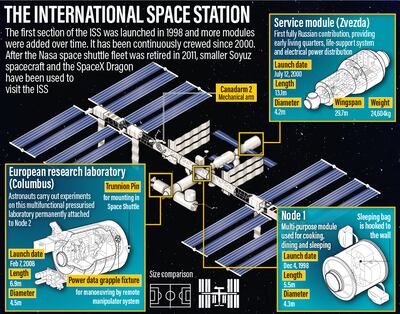
Astronauts use a funnel and hose for urine and the seat for bowel movements – both can be used at the same time.
The toilet has foot restraints and handholds that keeps the astronaut from floating away.
Toilet paper, wipes and gloves are disposed of in watertight bags.
Solid waste is kept in individual bags. Most of these are loaded on to a cargo ship and burnt on re-entry through Earth’s atmosphere, but some are brought back for evaluation.
The liquid is processed and filtered for consumption.
Water is heavy and storage space is limited on the ISS, so astronauts have to recycle almost everything, including urine and sweat.
It seems Dr Al Neyadi will have everything he needs in the bathroom, except for a shatafa.
Keeping clean
Water does not flow in a zero-gravity environment, so astronauts shower and brush their teeth differently.
This means installing a shower, faucet or sink on the ISS would be pointless because water would float away in the form of droplets.
Instead, Dr Al Neyadi will be using a wet towel containing body wash to clean himself.
To wash his hair, he will have to apply shampoo without water and wipe it off with a dry towel.
To brush his teeth, he can squeeze small amounts of water through a straw to rinse and then swallow.
More than just freeze-dried meals
Meals on the ISS have improved over the years, thanks to a new oven that was installed two years ago.
Astronauts have been baking cookies and using vegetables grown on the station as part of their diet.
But they mostly consume dehydrated food stored in packets. They add water to it or heat it in the oven, so it is ready to consume.
There are some ready-to-eat items, including fruit, bread and nuts.
Dr Al Neyadi has not yet revealed what his menu would include, but there will be some traditional Emirati cuisines.
During UAE astronaut Hazza Al Mansouri's trip in 2019, he took balaleet (an Emirati breakfast staple of sweetened vermicelli served with an omelette on top), salona (chicken stew) and madrooba (a savoury thick oatmeal).
Astronauts in space have 'food parties' in space sometimes, especially during holidays such as Thanksgiving, Eid or birthdays.
Fit as a fiddle
Exercising every day for about two hours is mandatory for astronauts to reduce the effects of zero gravity on their muscles and bones.
But they must use straps to keep themselves from floating away.
They do a lot of weight training using resistance exercise equipment, including vacuum cylinders that help mimic actual weights used on Earth.
On the treadmill, astronauts use rubber straps to hold their bodies down while they run.
They also use an ergometer – a bicycle without wheels.
Dr Al Neyadi is a fitness enthusiast, having trained in jiu-jitsu for many years, and he is taking his jiu-jitsu suit with him to space.
A good night's sleep
Dr Al Neyadi will have to restrain his body in a small sleeping compartment or sleeping bag to keep himself from floating away.
Astronauts in the past have also complained about a lot of noise on the ISS, including the sound of air-conditioning fans and machinery, so they use ear plugs.
Long distance relationships
Dr Al Neyadi is going on a long-duration mission, but he will be able to communicate with his family.
There is internet-enabled laptops on the ISS and astronauts can make voice calls and video calls to their loved ones.
However, they have to let mission control know first, so they can direct the satellite for the call.
This means family members cannot call Dr Al Neyadi spontaneously, as a satellite may be out of range.

